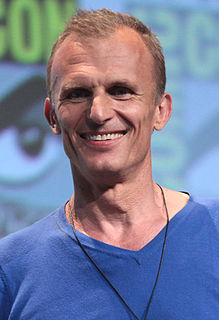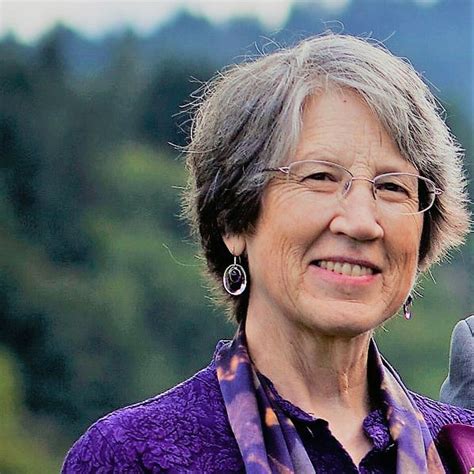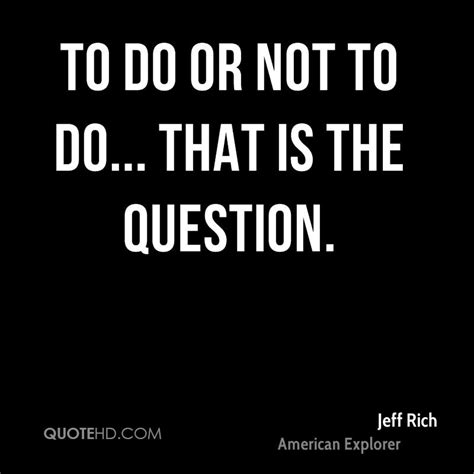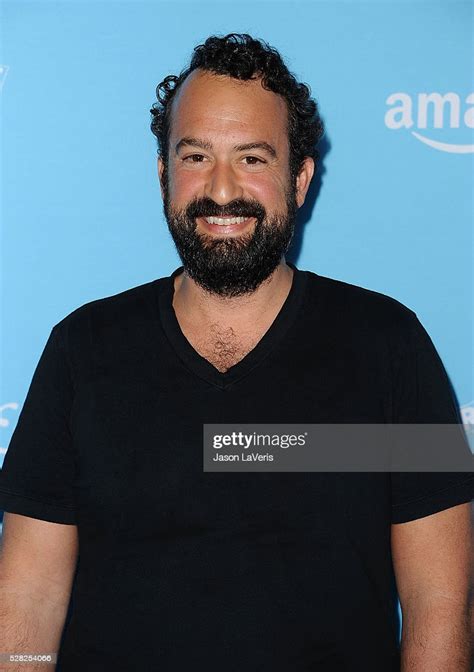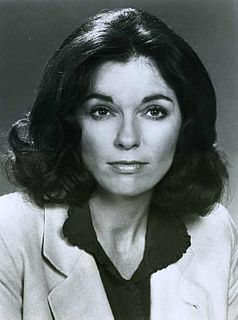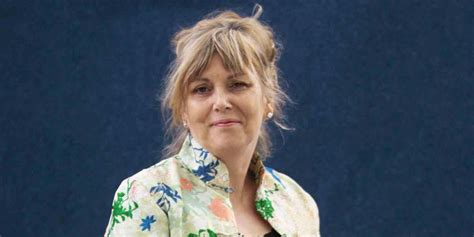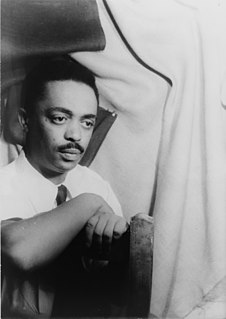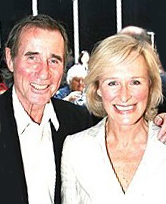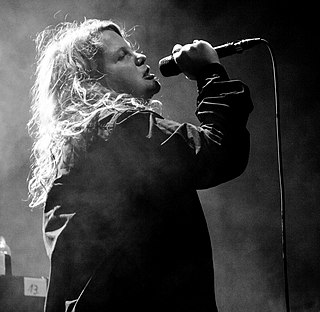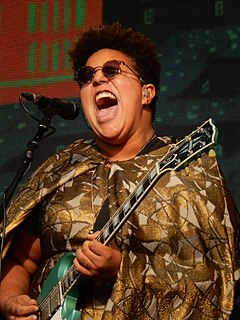Top 1200 Live Audience Quotes & Sayings - Page 20
Explore popular Live Audience quotes.
Last updated on April 16, 2025.
Long-running scandal fuels targeted political media. It's the stuff of obsession, which is the basis of a passionate core audience. More obsession means more passion and a crazy, over-the-top audience. Equally, of course, this obsession leads to less soberness, moderation and disinterest in the media world.
I love my situation as a spectator. The actors are only a little bit ahead of the audience. The audience discovers the episode when it's screened, but we actors only discover the episode when we get the script, two weeks ahead of shooting. Until then, we know nothing of the evolution of our characters.
I hope people half my age and twice my age will listen to my music - I want it to live forever and for my audience to feel like they have a friend in my music. Music is a spirit. It heals. It's an amazing thing to be loved and appreciated, and sometimes, music has not just been my best friend, it's been my only friend.
I always tell that to young people - go to college, do theater, work with an audience. Don't try to learn how to act in front of millions and millions of people. Don't make that your first ambition, to be on a sitcom or get into the movies. Learn who you are as an actor, and the best way to do that is to do it in front of an audience.
In the United States of America, unfortunately we still live in a bubble of unreality. And the Category 5 denial is an enormous obstacle to any discussion of solutions. Nobody is interested in solutions if they don’t think there’s a problem. Given that starting point, I believe it is appropriate to have an over-representation of factual presentations on how dangerous it is, as a predicate for opening up the audience to listen to what the solutions are, and how hopeful it is that we are going to solve this crisis.
If you're up there performing a song for the first time, it's as if you're hearing it through their ears. You become acutely self-conscious of the song in performance, so that's a good thing before recording. But I like to have some surprises for the audience; I don't want the audience to know everything that's going to be on the record, because these days, with the Internet, people become avid collectors of pre-knowledge.
God knows our despair. God wants His chosen people to live in peace. God loves life, cares less about death. We need to live. I want to live, I want my children to live. Everyone I know wants to live. You have to ask yourself what is more important to you, life is death. What is this world about - life or death?
If you're playing a good guy, you show some darkness. If you're playing a dark guy, you show something different, like humor, that will mix it up and hopefully surpass the audience's expectations. What I'm battling all the time is complacency in the audience. I try to bring a little mystery to what might happen because that engages people more.
For me, even if I'm singing to a very large audience, like in 'The Sound of Music Live' or in the 'She Loves Me' broadcast, I try to imagine that I am just singing to each individual. It doesn't change my energy other than being perhaps a bit more nervous. I try to sing to each person and right into their individual heart.
People are willing to pay for the right to cheer or boo Roman Reigns. That is your job as a box office attraction. Your job and the manner in which you feed your family is not dependent upon whether the audience respects you or disrespects you. It's dependent on the audience's willingness to pay to see you.
If you test Iron Man and that audience doesn't respond well, you can be damn sure that there is something wrong with the movie that you have to address. Because they're expecting a certain amount of action, right? They want a hero. There are certain things that have to be compatible with the way the audience is thinking about it. If you take some other film, like No Country for Old Men, you can end up with all kinds of crazy reactions.
You want the audience to get your movie, and you want the audience to like it. It's as simple as that. If they don't understand what you're trying to say, you've failed. Of course, you can't get 100 percent of the crowd to understand the movie, but you know when you've reached the people you want to reach.
I have a children's theater background, so I grew up performing for child audiences; it's sort of my specialty. I know the child audience pretty well - or felt like I did because I performed for them so much. I studied a lot about the child audience, about theater. So it was naturally a place that I gravitated to.
To be honest with you, I don't know how even to articulate it at this point, because sometimes the real difference in the seasons perhaps will come in the way the viewership responds and the audience responds. The thing about the show is - we realign a lot about it once our audience watches it. We learn things that we can't even anticipate.
Just in higher education alone, more people go to college now, by enormous amounts, than went to college in the '50's and '60's. So that represents a whole new literate public that's a consumer of literature, of news, of print, of, you know, opinion. And that's a bigger audience and much more diverse audience than it used to be.
Films for TV have to be much closer to the book, mainly because the objective with a TV movie that translates literature is to get the audience, after seeing this version, to pick up the book and read it themselves. My attitude is that TV can never really be any form of art, because it serves audience expectations.
I think that Tyler Perry's genius really has been to tap into the domestic market. He knows what his audience is based on, having toured America for so long, and then giving them the blueprint for his films prior to the films coming out, and then the films have the built-in audience because they've seen it in theaters already.
I love telling stories. When people interview me live I'm totally forthcoming about stories like that - as long as it's not going to be in print or recorded. It's just for whoever's in the audience. It's always been for me kind of fun and then everyone walks out of there, "She told this story about da da da" but nobody can prove it.
I do think - I always tell that to young people - go to college, do theater, work with an audience. Don't try to learn how to act in front of millions and millions of people. Don't make that your first ambition, to be on a sitcom or get into the movies. Learn who you are as an actor, and the best way to do that is to do it in front of an audience.
In the vast majority of movies, everything is done for the audience. We are cued to laugh or cry, be frightened or relieved; Hitchcock called the movies a machine for causing emotions in the audience. Bresson (and Ozu) take a different approach. They regard, and ask us to regard along with them, and to arrive at conclusions about their characters that are our own. This is the cinema of empathy.
Acting is not a genteel profession. Actors used to be buried at a crossroads with a stake through the heart. Those people's performances so troubled the onlookers that they feared their ghosts. An awesome compliment. Those players moved the audience not such that they were admitted to a school, or received a complimentary review, but such that the audience feared for their soul. Now that seems to me something to aim for.
I love readings and my readers, but the din of voices of the audience gives me stage fright, and the din of voices inside whisper that I am a fraud, and that the jig is up. Surely someone will rise up from the audience and say out loud that not only am I not funny and helpful, but I'm annoying, and a phony.
The customer is always right' may have become a standard motto in the world of business, but the idea that 'the audience is always right,' has yet to make much of an impression on the world of presentation, even though for the duration of the presentation at least, the audience is the speaker's only customer.
The minute you finish a piece of writing it doesn't belong to you, you don't write it any more, it belongs to you, the reader, the listener, the audience. So the less you know about whether or not this is me talking about my life or this is me talking about your life, I think the better. Then it can belong to you and it can live outside of the moment in which it was conceived.
You play with the audience, and they play back with you. They get into it, and then everybody gets into it. I don't want to be like a monkey on stage and just go through the motions because then it wouldn't be fun anymore. I just pay attention to the audience and appreciate the fact that somebody wants to see us. That gets me psyched.
We are a band that stylistically crosses a lot of barriers and generational gaps. The heavier portion of the band, the modern music elements, the visual part of the band appeal to a younger audience. For an older audience, we have chops and great songs that are reminiscent of the things that were great about rock and roll when they enjoyed it. We're the kind of band that can cross those lines.
Playing villains is very liberating because unlike the leading man, nothing is expected of you. Leading men have to look good, they have to behave in a certain way, they have to fulfill an audience's expectations. But as a bad guy, you have free license to take the audience by surprise. And that's what audiences want - they want unpredictability from their villains. The villain's job is to subvert it.
I love watching audiences scream. I imagine it's the same joy that a director feels who has made a comedy when he or she is sitting at the back of a theater listening to the audience laugh. That sound of laughter is so sweet to a comedy director and that's exactly how a horror film feels when you hear the audience scream.
A playwright, especially a playwright whose work deals very directly with an audience, perhaps he should pay some attention to the nature of the audience response - not necessarily to learn anything about his craft, but as often as not merely to find out about the temper of the time, what is being tolerated, what is being permitted.
I started to make harder jokes before anyone else did. And the producers would get anxious. They'd say, 'That's a little bit hard-edged, isn't it?' And I'd say, 'Let's just try it and see how the audience reacts. If they don't like it, let's cut it out.' And the audience roared with laughter, so I learned you could do this harder humor and people loved it.
I don't have an audience in mind when I write. I'm writing mainly for myself. After a long devotion to playwriting I have a good inner ear. I know pretty well how a thing is going to sound on the stage, and how it will play. I write to satisfy this inner ear and its perceptions. That's the audience I write for.
I've always believed that a good twist is one that, when it is presented to the audience, half of them say, 'I saw that coming.' And half of them are completely and totally shocked. Because if you don't have the half that saw it coming, then it wasn't fair: You never gave the audience a chance to guess it.
Part of the pleasure of giving a reading comes from the rapport between the audience and the poet. I don't want to get mystical here, but there's an energy flow that begins with the poet, and the energy goes out to the audience, and they're energized, and then they return that energy to the poet. As someone standing up there alone, facing these people, I can feel that rapport (or its absence).


